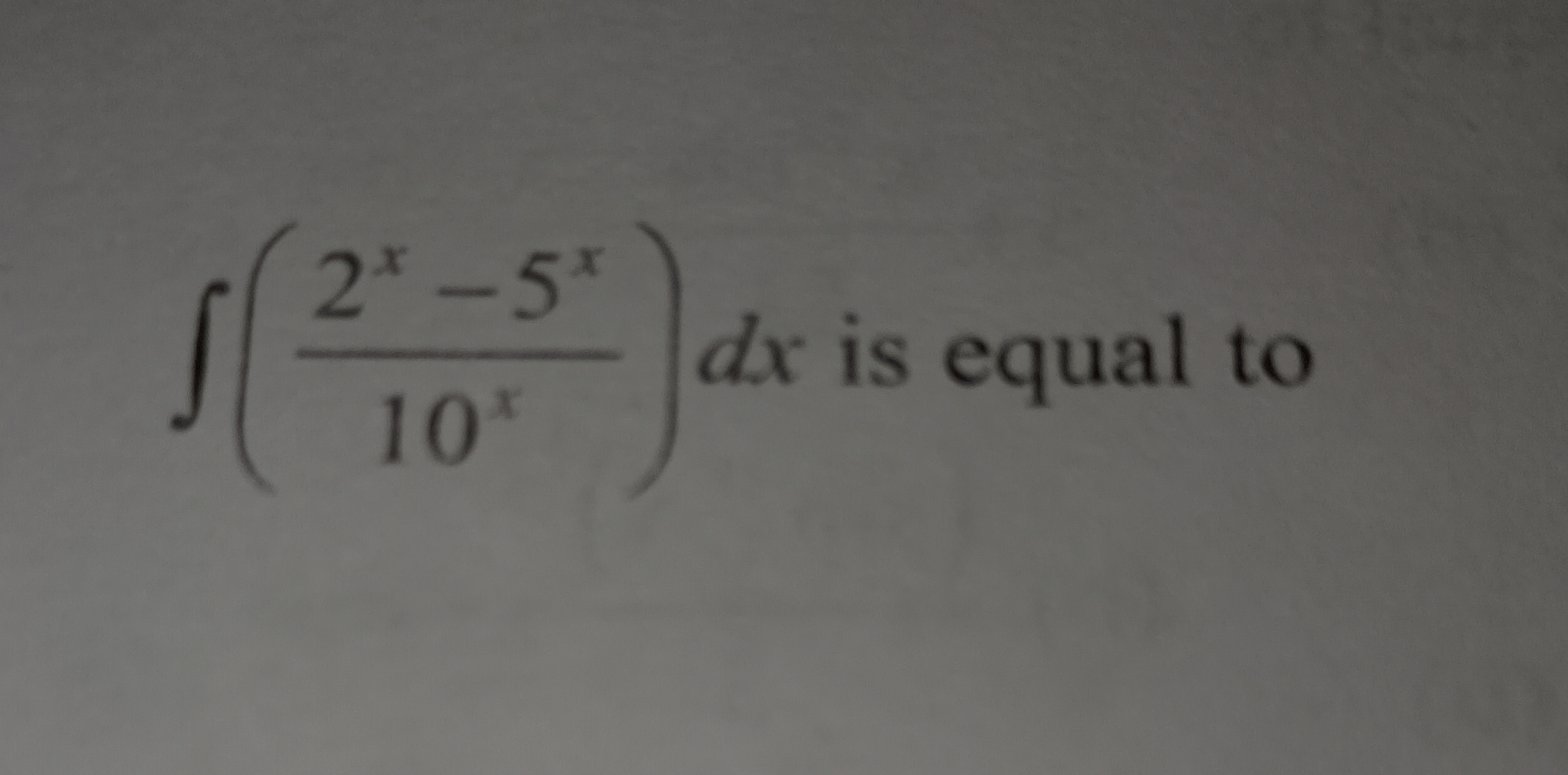Question
Question: $\int \left( \frac{2^x - 5^x}{10^x} \right) dx$ is equal to...
∫(10x2x−5x)dx is equal to

2xln21−5xln51+C
Solution
The problem asks us to evaluate the integral ∫(10x2x−5x)dx.
First, we simplify the integrand: 10x2x−5x=10x2x−10x5x Using the property bxax=(ba)x: =(102)x−(105)x =(51)x−(21)x This can also be written using negative exponents: =5−x−2−x Now, we need to integrate this expression: ∫(5−x−2−x)dx=∫5−xdx−∫2−xdx We use the standard integration formula for akx: ∫akxdx=klnaakx+C For the first term, ∫5−xdx: Here, a=5 and k=−1. ∫5−xdx=(−1)ln55−x+C1=−ln55−x+C1 For the second term, ∫2−xdx: Here, a=2 and k=−1. ∫2−xdx=(−1)ln22−x+C2=−ln22−x+C2 Combining these results: ∫(10x2x−5x)dx=−ln55−x−(−ln22−x)+C =−ln55−x+ln22−x+C This can be rearranged for better readability: =ln22−x−ln55−x+C Or, expressing a−x as ax1: =2xln21−5xln51+C
Explanation of the solution:
- Simplify the integrand: Rewrite 10x2x−5x as (102)x−(105)x, which simplifies to (51)x−(21)x or 5−x−2−x.
- Integrate term by term: Apply the integral formula ∫akxdx=klnaakx+C to each term.
- For ∫5−xdx, a=5,k=−1, yielding −ln55−x.
- For ∫2−xdx, a=2,k=−1, yielding −ln22−x.
- Combine the results: Subtract the second integral from the first, remembering the minus sign from the original expression. This gives ln22−x−ln55−x+C.
- Rewrite using positive exponents: 2xln21−5xln51+C.
